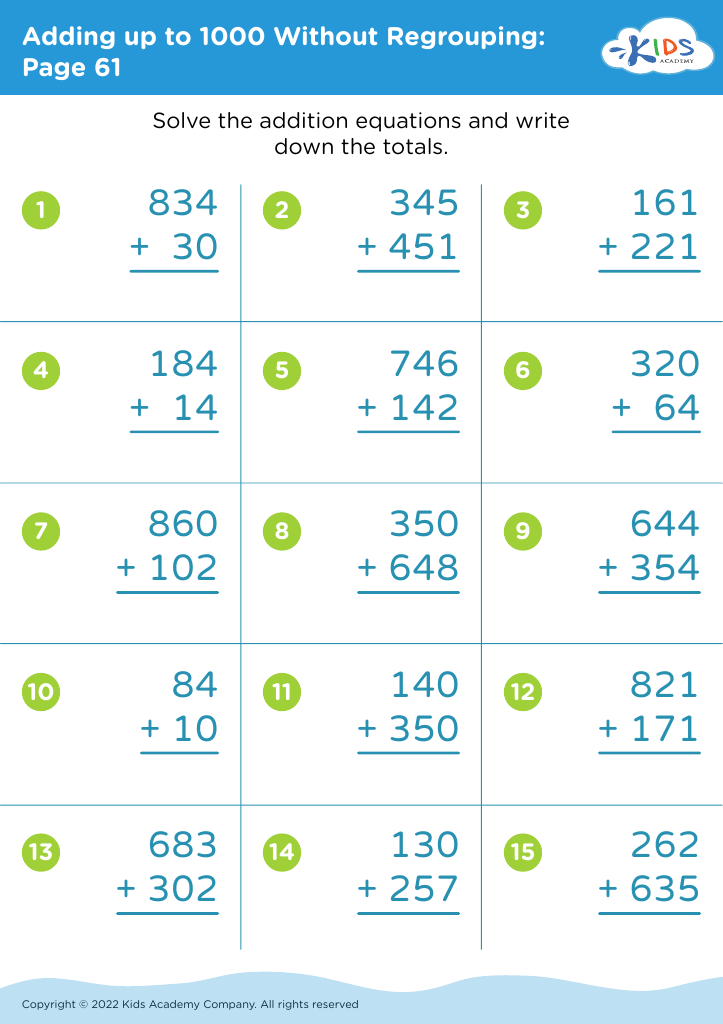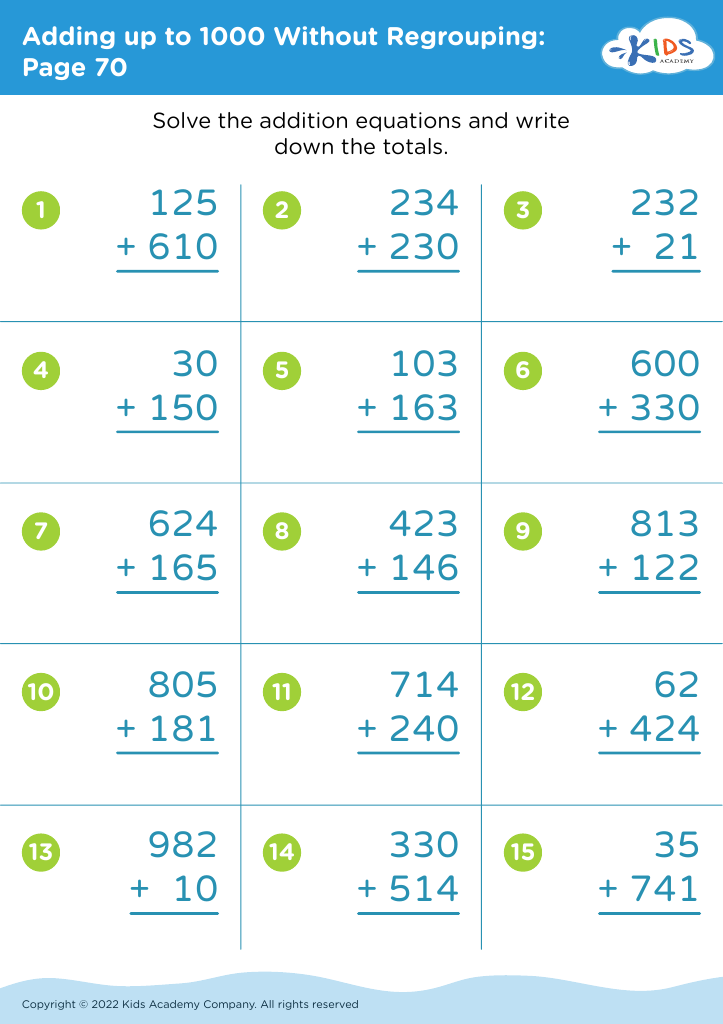Basic Addition Adding up to 1000 Without Regrouping Worksheets for Ages 7-8
4 filtered results
-
From - To
Introducing our "Basic Addition Adding up to 1000 Without Regrouping Worksheets" tailored for ages 7-8! Perfect for young learners, these engaging and interactive worksheets help children master the skill of adding numbers up to 1000 without the complexity of regrouping. With a variety of fun exercises, students will build confidence and fluency in arithmetic. Designed to align with early elementary math standards, these printable sheets make a great addition to any lesson plan or as extra practice to reinforce classroom learning. Help your child unlock their math potential with these expertly crafted, stimulating worksheets!
Parents and teachers should care deeply about teaching basic addition up to 1000 without regrouping for children aged 7-8 because it is a crucial foundational math skill. At this developmental stage, understanding addition enhances children's confidence in handling numbers and builds essential numeracy skills. Mastery of basic addition allows children to better understand more complex mathematical concepts later, such as multiplication, division, and algebra.
Practicing addition without regrouping helps students develop mental arithmetic skills. By relying on mental strategies, children improve their cognitive abilities such as memory, concentration, and logical thinking. Moreover, addition forms the bedrock for everyday practical tasks, including handling money and measurements, which are vital life skills.
From a social perspective, mastering these skills fosters a sense of achievement and enhances self-esteem, encouraging a positive attitude toward learning more challenging subjects. It also prepares children for standardized tests and academic progression by meeting curricular standards.
Furthermore, early success in addition can promote a growth mindset, where children are more likely to approach future academic challenges with resilience and enthusiasm. Thus, giving due attention to mastering addition up to 1000 without regrouping equips young learners with indispensable life-long numeracy skills and a strong educational foundation.














